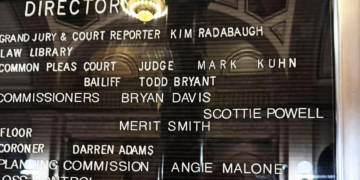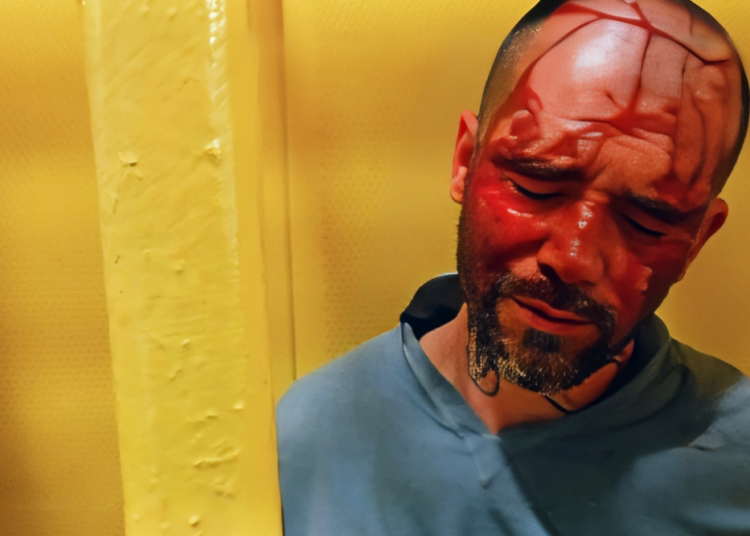A federal jury in Cincinnati recently awarded $404,000 in damages to Tommy Meadows, an inmate at the Southern Ohio Correctional Facility in Lucasville. This outcome marks one of the most significant prisoner civil rights cases in recent years, stemming from an attack by corrections officers who reportedly bashed the inmate’s skull. Meadows is an inmate inside an Ohio prison who went on to win nearly half-a-million dollars against the state for the attack.

The five-day trial in the U.S. District Court for the Southern District of Ohio, presided over by Judge Jeffrey Hopkins, concluded with the jury unanimously finding two corrections officers and a lieutenant liable for excessive force and retaliation. Jurors awarded Tommy Meadows $209,000 in compensatory damages and $195,000 in punitive damages.
The jury determined that the defendants violated Meadows’ Eighth Amendment right against cruel and unusual punishment on July 25, 2019. Video evidence and trial testimony showed the officers subjected Meadows to a “needless and gratuitous takedown and pile-on,” during which they bashed his skull into a concrete wall and floor. Tommy Meadows was later shown with skull injuries after he was attacked.
Following the physical assault, Meadows was locked alone in a strip cell while handcuffed behind his back. Surveillance footage captured one officer approaching the cell door and deploying a full burst of pepper spray into Meadows’ face without provocation. Less than four minutes later, a second officer repeated the assault, again blasting Meadows with pepper spray while he remained cuffed and unresisting.
Retaliation Found in Grievance Suppression and False Charge
The jury also found that the officers retaliated against Meadows for exercising his First Amendment right to petition the government. After the assault, Meadows filed grievances that were suppressed by prison officials. His then-girlfriend, Madeleine Smith—now his wife and a member of the Redbird Books-to-Prisoners program—persistently appealed the suppression. Months later, the Ohio Department of Rehabilitation and Correction’s (ODRC) chief inspector acknowledged the error and processed the grievances.

In continued retaliation, one of the defendant officers who had participated in the initial takedown filed a disciplinary report. The officer alleged he overheard Meadows, while in restrictive housing, shouting through cell bars to an inmate three cells away about a plot to kill a guard and “land on death row”. The allegation was uncorroborated, as the officer could not recall which supervisor he notified, no other staff heard the exchange, and surveillance footage was not reviewed to confirm the inmates were even speaking. Ultimately, the jury did not find the officer’s allegations credible.
Though love letters introduced at trial showed Meadows was falling in love with Smith and was only two years from parole eligibility, the false charge nonetheless extended his prison sentence by two years.
Attorneys Peter Pattakos and Emmett Robinson represented Tommy Meadows. Before the trial commenced, the state had offered only $5,000 to settle the case. All three defendants, including the lieutenant who was later promoted to a “commander” overseeing eastern Ohio prisons, testified they had “no regrets” and would not act differently today.
Attorney Robinson commented on the significance of the verdict, stating: “This was one of the most significant civil-rights jury verdicts in the Southern District of Ohio in many years,”. He highlighted the difficulty of such cases for plaintiffs, noting: “Inmates rarely have counsel in these sorts of cases. These cases rarely go to trial. And inmates almost never win. But thank God that wasn’t the outcome here!”.

Robinson expressed hope that the verdict would spur major reforms at ODRC, where he says “a pattern of deeply troubling and well-documented abuse” persists despite the presence of many dedicated employees.
In his closing statement to the jury, Attorney Pattakos urged them to remember the facility’s purpose, stating: “DRC stands for ‘Department of Rehabilitation and Correction,’ not ‘Torture and Misery.’”.
The plaintiffs intend to seek attorneys’ fees under federal civil rights statutes.


















































































